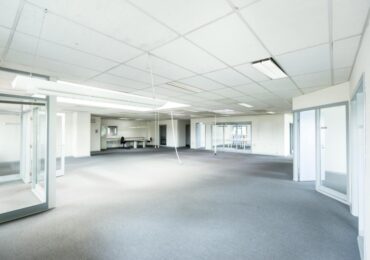
As the ever-shifting landscape of interior design and architecture, flexibility is now an utmost priority. Companies shift towards more agile work setups. Shopping spaces change dynamically to suit consumers’ demands. So, traditional walls are gradually becoming antiquities. Enter removable walls—a genius, stylish, and cutting-edge solution that’s revolutionizing commercial spaces.
Flexibility in Commercial Buildings
Today’s office no longer lives by static, unchanging configurations. Hybrid work groups, collaborative environments, and changing team compositions have all contributed to the need for design that changes as rapidly as does the work itself. Modular walls allow companies to modify their space without spending capital on lasting construction, saving time and dollars. Storefronts, likewise, must refresh constantly to showcase new items, changing floor plans, or promotional stands. The portability offered by removable walls liberates brands to reimagine a new tale every month, without hiring a contractor for each incarnation.
A Genius Solution for Dynamic Brands
A modular wall system’s cleverness is innate. Meant to be reused, easily dismantled, and rearranged in finish, such systems allow brands to reimagine by design. Offices are able to create quiet spaces or collaboration spaces.
Retailers are able to display secondary lines of product with seasonal highlights through visually engaging dividers. Modular walls are not temporary dividers that go out of style and become garbage; they can be rearranged, moved, or upgraded in order to keep up with the pace of your business.
Sustainable and Cost-Effective Design
The least appreciated benefit of modular walls might be that they assist with sustainability. Instead of tear-down-and-rebuild, businesses recycle the same material repeatedly. Not only is this cost-effective in terms of construction waste, but it is also advantageous in terms of green building certification and environmental responsibility programs.
In the long term, reduced contractor utilization, labor, and raw materials equate to massive dollars saved. On top of that, modular wall panels can be shipped in environmentally friendly materials and finishes, and therefore are the ideal choice for green businesses.
Enhancing User Experience in Office and Retail Spaces
Design isn’t aesthetics—it’s function and touch as well. Modular components give an unparalleled ability to create customer and worker experience by managing space flow, acoustics, and brand. Need more privacy? Put on a wall. Need to open up space for a party? Remove it. That amount of flexibility allows for dynamic spaces where human beings are more relaxed, productive, and creative.
In retail, strategic placement can guide traffic, create visual focal points, and even influence dwell time. In the office, they maximize collaboration and communication but offer a perception of orderliness and professionalism.
The Future Is Modular
As the need for agility and creativity only intensifies, so too does the desire for modular design. Interchangeable walls aren’t simply a style statement—they’re an intelligent investment. From constructing a fresh office space to re-designing a flagship location, implementing modular walls puts your company in a prime position for success over time. They’re the perfect marriage of aesthetics, flexibility, and efficacy in an accelerated world.
Conclusion
In the fast-paced, ever-changing business environment of today, flexibility is no longer a nicety—it’s a requirement. Businesses that embrace modular wall systems are better positioned to change, grow, and thrive. With benefits ranging from cost savings to environmental stewardship and design flexibility, demountable walls are irrefutably shaping the future of office and retail space design. Investing in this intelligent solution is more than a design choice—it’s a competitive advantage.